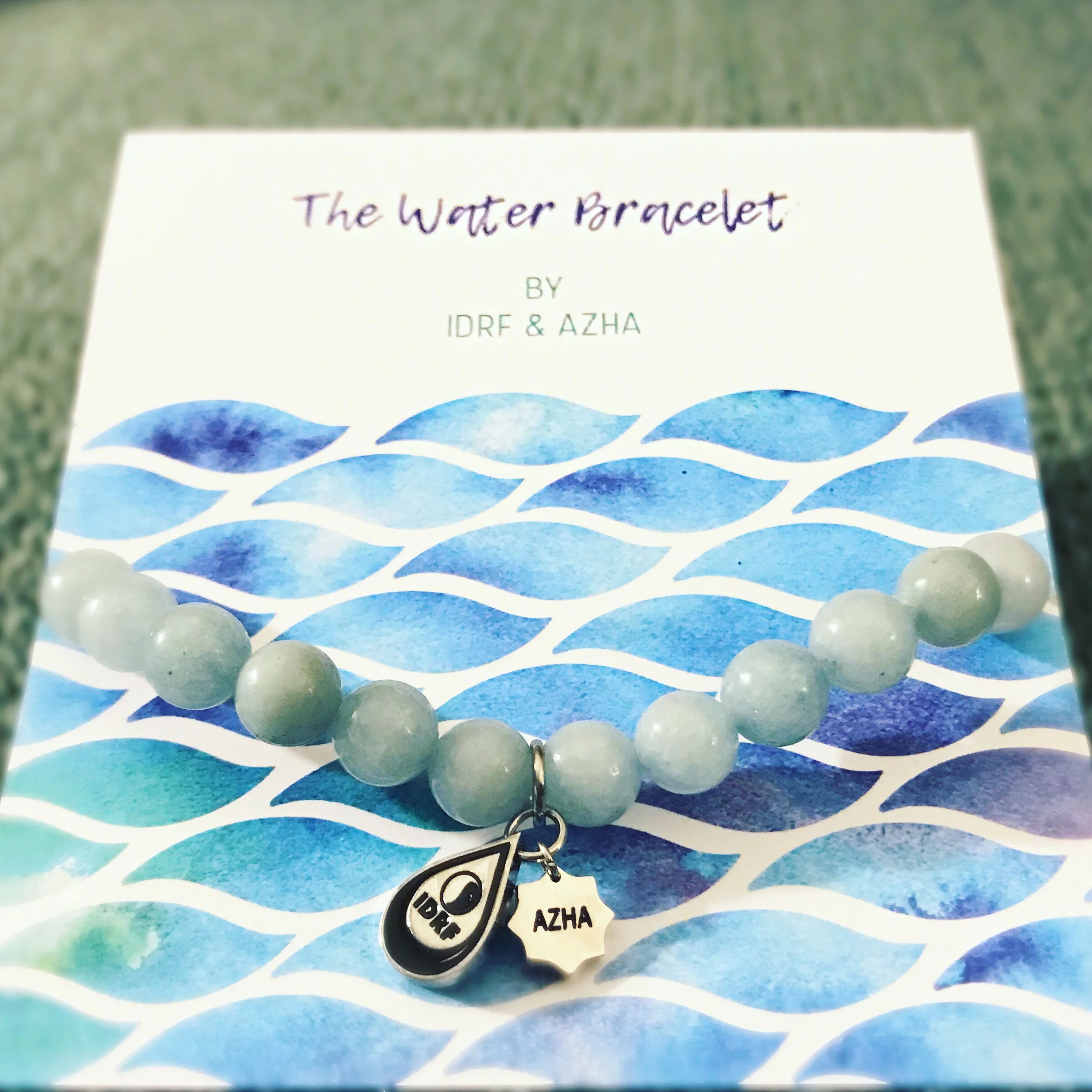The International Development and Relief Foundation (IDRF) recently partnered up with Azha, an Arabic spiritual lifestyle brand, to help raise awareness about water access issues and promote their clean water project.
All proceeds from the Water Bracelet will go towards promoting clean water for schools, sand filters for villages and water pumps to help improve people's quality of life in drought prone regions.
According to the World Health Organization, 663 million people lack access to safe water and every 90 seconds a child dies due to a water borne disease. The World Economic Forum announced last year that the water crisis is the number one global risk based on impact to society (as a measure of devastation). The Water Bracelet is one tool to encourage the discussion around the issue of water scarcity and security abroad, while also promoting conservation here at home.
The IDRF also operates Water, Sanitation and Hygiene (WASH) programs that provide access to safe drinking water, adequate sanitation facilities (such as washrooms and hand washing stations), and hygiene education for women, men, and children to keep families healthy and break the cycle of poverty.
About IDRF
IDRF (International Development and Relief Foundation) is a Canadian registered charitable organization dedicated to empowering the disadvantaged people of the world.
IDRF provides effective humanitarian aid and sustainable development programs, without discrimination, based on the Islamic principles of human dignity, self-reliance, and social justice.
IDRF seeks to provide the most vulnerable communities with the means to create lives of dignity, equality and sustainability, towards a more just world. Since 1984, IDRF has implemented relief and development projects across territories in South and Southeast Asia, Africa, the Americas, Eastern Europe and the Middle East.
Impact of Water Scarcity
750 million people in the world don’t have access to safe water and 2.5 billion people don’t have access to adequate sanitation. Tragically, every minute a child dies of water-related diseases, and over 500,000 children die every year from diarrhea caused by unsafe water and poor sanitation.
Water is essential for survival, and for peace. Water shortages lead to reduced food production, mass displacement, undermined livelihoods, and dire public health outcomes – all of which can lead to conflict. Working with whole communities on comprehensive solutions is critical. So too is using technology and innovation to bring water where it is needed most.
In many communities, women and girls are most affected by water scarcity. Women and children spend an estimated 140 Million hours each day collecting water, often from distant, unsafe sources to provide for their families. When women do not have a safe place for sanitary practices, they risk increased violence, increased health risks, and diminished abilities to participate in school and public life. IDRF WASH programs consider the unique needs of all members of the community, and make access and education key components of our programs.
Source: IDRF


